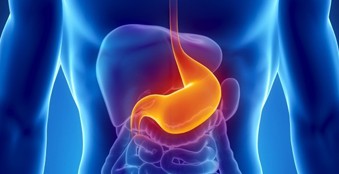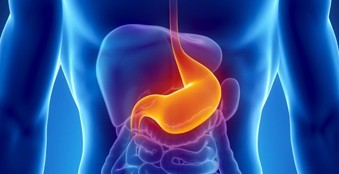Cellular changes in the stomach lining, called metaplasia, increase the risk for gastric cancer, the third leading cause of cancer deaths worldwide.
Two types of metaplasia are observed in the human stomach: pyloric metaplasia, initiated from spasmolytic polypeptide-expressing metaplasia (SPEM) cells, and intestinal metaplasia, which can represent a more advanced type of metaplasia.
James Goldenring, MD, PhD, and colleagues have identified markers of the transition from metaplasia to dysplasia, the appearance of precancerous cells. Now they report that aquaporin 5 (AQP5), a water transporter protein, is a lineage-specific marker for SPEM cells in both mice and humans.
With other markers of cell lineages in the metaplastic stomach, AQP5 may help define how metaplasias develop and progress, and potentially may improve the assessment and treatment of patients at highest risk for gastric cancer, the researchers concluded.
Su-Hyung Lee, DVM, PhD, Bogun Jang, MD, PhD, and Jimin Min, PhD, are co-first authors of the paper published in the journal Cellular and Molecular Gastroenterology and Hepatology.
This research was supported by the Department of Veterans Affairs, National Institutes of Health (grants CA160479, DK071590, DK101332, CA160399, CA244970, CA236733, CA191242), Cancer UK Grand Challenge, and National Research Foundation of Korea.















